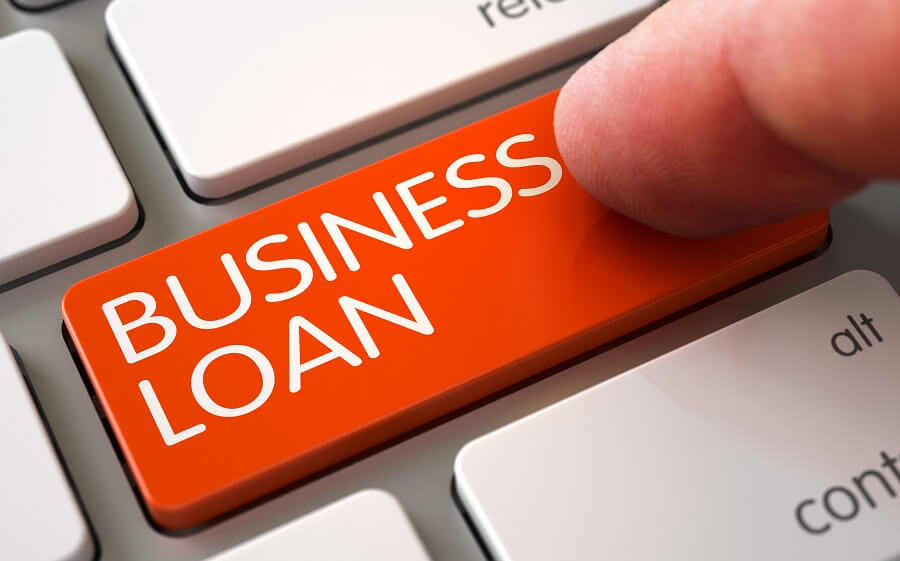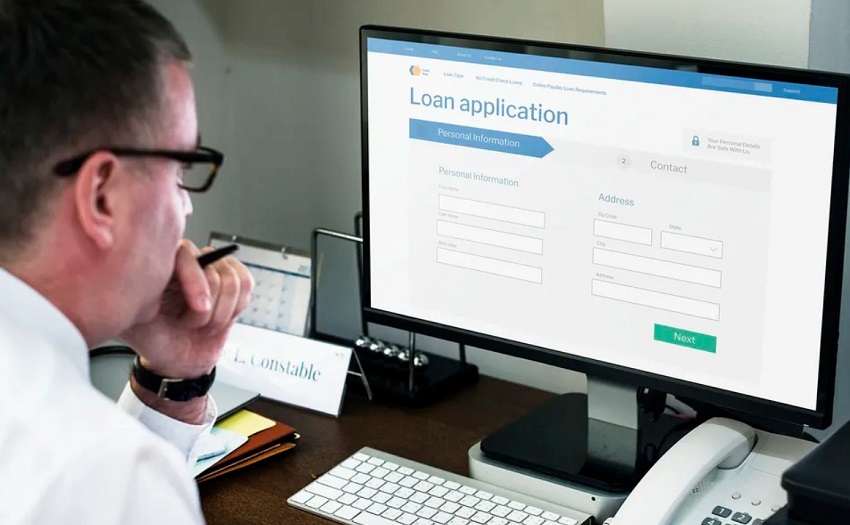
When it comes to scaling your business, capital is a critical piece of the puzzle. Raising funding for expansion is one of the biggest hurdles small business owners have to overcome to take their enterprises to the next level.
Your best bet would be to secure a business loan against one or more assets you own to raise the funding you need. Secured business finance reduces the lender’s risk exposure, making it more likely for them to approve your application and give you competitive interest rates while they’re at it.
What is a secured business loan, and how does it work? This guide takes an in-depth look at the answer to this question and more.
Jump to:
- What is a secured business loan?
- How does a secured business loan work?
- What are the requirements to qualify for a secured business loan?
- What loan amount can I get?
- What is the difference between a secured and unsecured business loan?
- How hard is it to get a secured business loan?
- What can I use as collateral for secured business loans?
- Get expert help from a bad credit loan broker
- FAQ
We have access to over 200+ lenders in the UK to get you the best ratesWe are expert mortgage brokers
What is a secured business loan?
Secured business loans allow borrowers to use one or more valuable assets as security against the money they borrow. These assets act as a personal guarantee to the lender, which often means that small business owners get to enjoy better terms than they would get with unsecured loans.
Business finance is typically secured against any high-value asset(s) you or your business own. This can be anything from property and land to expensive machinery and equipment. Other types of collateral that can be used to secure lending include accounts receivable (money that customers or clients owe to your business) and invoices.
Secured loans pose less risk to loan providers, subsequently increasing the chances of getting your loan application approved. Asset-backed funding is a great option for business owners looking to scale by setting up shop in new markets, growing their workforce, increasing cash flow, or perhaps investing in new machinery or equipment.
Small business owners can apply for a secured loan from traditional high-street lenders such as banks. Secure finance is also available from non-traditional channels such as niche lenders whose speciality lies in bad credit lending. All secured lending companies must be licensed and regulated by the Financial Conduct Authority (FCA) and the Prudential Regulation Authority (PRA) and should appear on the Financial Services Register.
How does a secured business loan work?
Secured business finance works in much the same way as many other forms of business borrowing. The commercial loan amount you get will depend on various factors, including the value of the asset(s) you put up as collateral and your business needs. This is different from the way an unsecured business loan works, whereby the finance amount you qualify for is calculated as a multiple of your business’s annual turnover.
The application process for business finance is in many ways similar to the process of applying for a mortgage. The loan provider has to value the asset(s) you intend to put up as collateral, and the assessment-to-approval process can take several weeks to complete depending on the complexity of your situation.
If you intend to use a property you or your business owns to secure the loan, the lender will institute a legal charge on it. A legal charge on property refers to a legal document that ties an asset to an outstanding loan, allowing the lender to secure the debt to the collateral in question.
Once the lender completes their due diligence, approves your business loan application, and you sign the finance agreement, they will disburse the funding to your business bank account. You are then required to abide by the terms stipulated in the agreement, which means making the required monthly instalments on time for the entire duration of the repayment term, which is usually fixed. Depending on your business needs, the loan term can be short, medium, or long.
If you default on the loan, meaning you fail to make the required loan repayments, the lender has the right to dispose of the asset you put up as collateral for the loan and use proceeds from the sale to recoup their losses.
What are the requirements to qualify for a secured business loan?
The lending criteria for individuals seeking secured business loans aren’t as stringent as those for unsecured lending applicants. Even then, different lenders have different requirements depending on their risk appetite, the borrower’s credit history, and the business’s financial position.
If you or your business owns one or more valuable assets you can put up as collateral for your business loan, you will likely be approved for funding. The lender will evaluate the value of your asset(s) and will want to know the reason why you need the funding. They will look into your business’ trading history to determine what your month-to-month income and expenses are like to determine what an ideal monthly repayment amount would be.
Even if your business has little to no trading history – if you’re a startup – lenders care more about the value of the assets you use to secure the loan. If you have bad credit, you’ll still need to show them that your business is viable enough to be able to comfortably service the loan.
Most lenders also require your business to have been registered within the UK and operational for at least three months.
What loan amount can I get?
The loan amount you qualify for depends on the lender’s lending criteria as far as what percentage of the asset’s value they can offer you. Most lenders typically offer 80% of the asset value. For instance, if you’re putting up your home as security for the loan and you hold £200,000 in equity, you would qualify for finance worth £160,000.
Some lenders have been known to offer loans amounting to the full value of the asset in question, although these categories of providers are few and far between. In most cases, the loan amount you’ll get will usually be 50-80% of the asset value.
What is the difference between a secured and unsecured business loan?
The main difference between secured and unsecured business loans has to do with whether or not the borrower puts up an asset as collateral. The asset will usually be a tangible item such as a private or commercial property, vehicle, or valuable piece of machinery. Some lenders also accept accounts receivable and invoices from business debtors as security for these loans.
When you take out a secured business loan, you absorb a huge portion of the risk from the lender. If you default on your monthly repayments, the loan provider can simply sell off your asset and use the money to offset the outstanding balance on the loan – interest and fees included.
On the other hand, an unsecured business loan does not need to be asset-backed. The lender is more concerned with your business profile and looks at things like your credit score, trading history, and business turnover. They may also be interested in your personal credit rating when evaluating your overall creditworthiness for asset finance.
Because of the lower risk exposure secured business loans pose to lenders, the terms that come with them are more flexible than their unsecured counterparts. They have lower interest rates and longer repayment terms, making them ideal for business owners looking for larger amounts of funding.
The drawback to secured small business loans is the time it takes to finalize them. Lenders have to do their due diligence on the business asset and value them before they can approve you for a loan. This process can take a few weeks to conclude. On the other hand, unsecured loans have significantly shorter processing times. The lender can disburse the funding to your account in as little as 3-5 days upon approval.
Since the lender takes on more risk than the borrower, unsecured small business loan options tend to be more expensive. The finance amounts they qualify for are much lower than secured loans. That said, unsecured loans have little to no upfront costs, which isn’t the case for secured loans.
How hard is it to get a secured business loan?
It is “easier” to qualify for a secured business loan than it is for an unsecured loan. Ease, in this case, refers to the accessibility of the loan. Lenders are more likely to approve a loan application from a borrower who puts up an asset as collateral to secure funding, even if they have bad credit – to an extent.
Loan providers will want to see a positive trading history to make sure your business can afford the monthly repayments despite its adverse credit history. Secured business loans are also a great option for startups with little to no credit history or any annual accounts that lenders can use to gauge their performance.
As long as the business is registered in the UK and has been in operation for at least three months, lenders would be willing to approve you for a loan if you have a valuable asset to back it.

What can I use as collateral for secured business loans?
When assessing an asset that can be used as collateral for secured business loans, lenders look at three things:
- How easily can they dispose of the asset if they need to?
- How well does the asset hold its value?
- How important is the asset to you or your business?
- Is it more valuable than the loan finance you want to borrow?
Some assets commonly used as collateral for loans include:
- Commercial properties such as shops, warehouses, and offices
- Commercial vehicles such as cars, vans, and trucks
- Heavy machinery, such as printing presses and plant machinery
- Soft assets, such as unsold stock in warehouses
- Accounts receivables and invoices
- Personal assets such as residential property, vehicles, and shares
If you don’t own an asset, consider expanding your funding circle. Some potential funding options that would be worth looking into include a merchant cash advance or SBA loan.
Get expert help from a bad credit loan broker
Bad credit is no reason to shy away from getting the funding you need to take your business to new heights. If past loan applications have been denied, consider getting expert help from an experienced bad credit broker. They understand the nuances of the bad credit finance market and will match you to a lender that will likely approve your application.
Fluent Money is a UK-accredited broker with a verifiable track record of getting more loan applications approved than other UK brokers.
Get in touch with us today, and we’ll get you a free quote in minutes.
FAQs
Can I use my property to secure a business loan?
Yes, you can. Any valuable asset, such as personal or commercial property, commercial machinery, and even soft assets, such as stock in warehouses, can be used to access secured business loans. Any commercial or personal asset that would be considered valuable can be used as collateral for a secured business loan.
Will a secured business loan hurt my credit rating?
A loan can only have a negative impact on your credit score if you miss a loan repayment or default on it altogether. Ensure you read through and understand the terms and conditions of the loan agreement so that you know what happens when you’re late on or miss an instalment. Find out what constitutes a loan default to know whether it refers to one or several missed payments. Either way, these are bound to have a negative impact on your credit rating.
Are secured business loans cheaper than unsecured loans?
Yes, they are, for the simple reason that they pose less risk to the lender. Lenders tend to offer lower interest rates and longer repayment durations on secured business loans than they do unsecured business finance. If the borrower defaults on the loan, the lender can sell the asset and use the sale proceeds to recoup their losses as part of their recovery loan scheme.

